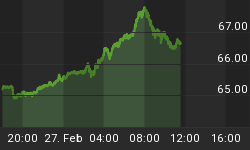As most readers of this short paper probably know, Dr Steven Chu is the energy secretary of the United States, a physicist, and a Nobel Laureate. Discovery Magazine, in its latest issue (2011), selected what it called the "100 top stories of 2010", one of which was authored by an editor of Discovery, and whose main purpose was to verify Dr Chu's green credentials.
Some important observations of the Econ 101 variety were missing from Dr Chu's answers to editor Corey Powell's questions, which unfortunately prevents me from recommending his 'piece' to serious readers.
Mr Powell began this Q&A with a reference to the Gulf Coast oil spill, asking how an accident of this magnitude could happen. I won't bother to discuss Dr Chu's answer, because both question and answer were irrelevant. Statistically, accidents of that type are unavoidable, and have always taken place. If we go back to the Second World War, we can look e.g. the unnecessary invasion of Peleliu Island and the attack on Manila, the failure to clear the approaches to the port of Antwerp as soon as possible, and perhaps the worst blunder of all, which was adopting the Sherman as the main American battle tank. Compared to those 'accidents', the Gulf Coast tragedy was small beer.
For long term energy investments, Dr Chu pictures the U.S. moving toward the electrification of personal vehicles. So do I, only I don't have a clue as to the details, nor how rapidly a large-scale electrification could be completed if deemed necessary. I therefore wonder if the secretary and his foot soldiers could provide us with the kind of information that we can use in our teaching and publications, and to do so as soon as possible - assuming that they, unlike my good self, have examined this issue sufficiently to tell us something beyond public relations hype.
His thoughts on nuclear energy bother me somewhat, because he states that large reactors will cost 7 to 8 billion (US) dollars. I regard that estimate as completely and totally wrong, and suggest that he should have a talk with Anne Lauvergeon about her plans for her firm Areva, as well as what she knows about the new Chinese reactors. Evidence from the nuclear past and present leads me to insist that "large" reactors, whose construction is organized by competent managers, will soon cost a maximum of 5 billion dollars. This is because the time span from ground break to grid power will be less than 5 years, and when the nuclear renaissance moves into full swing, perhaps much less.
"Future-gen" (in the form of zero-emission coal power plants) evidently plays a prominent role in Dr Chu's vision of an optimal energy structure. It plays none whatsoever in mine however, and I never use the expression "future-gen" nor listen to anyone discussing it. Carbon Capture and Sequestration (CCS) is an element in this activity, and the Swedish firm Vattenfall once made certain optimistic promises to the German government and newspaper readers concerning their efforts in that direction. Jeffrey Michel, an MIT graduate and energy consultant living in Germany, calls CCS a thermodynamic travesty, and remembering my own long and delightful study of thermodynamics and engineering economics causes me to say that Michel's judgement is much too mild.
A carbon-free United States in 2050 seems to be one of Secretary Chu's more abstract notions. Interestingly, a recent large energy meeting in Berlin was on the same wave length, where the emphasis was on solar and wind's place on the German energy scene in the same year. As far as I am concerned, the German intentions are strictly off-the-wall, and in 2050 the German nuclear intensity will match or overmatch that in France. The nuclear equipment will be breeders, and I sincerely hope that the security problems associated with those reactors are solved the way that they should be solved, because if not somebody could be in a world of hurt.
Finally, Dr Chu mentions that "there is no law of physics which states that the whole society can't benefit", and unlike the contention of e.g. Gordon Gekko (in the film Wall Street), he says that "there is no zero sum game here". It was really very decent of the Secretary to inform us of his interest in the subject of game theory, because in a world of 9.5 billion souls - which is his prophecy for 2050 - a complicated version (or extension) of the zero sum paradigm is going to be the order of the day, and there is very little - or more realistically nothing - that he or all the Nobel Prize winners since Adam and Eve can do about that.
Source: http://oilprice.com/Energy/Energy-General/In-the-Head-of-Energy-Secretary-Chu.html
By. Professor Ferdinand E. Banks for OilPrice.com. For more information on oil prices and other commodity related topics please visit www.oilprice.com
REFERENCES
Banks, Ferdinand E. (2011). Energy and Economic theory. Singapore, London and New York: World Scientific.
Powell, Corey S. (2011) 'Secretary of Energy Steven Chu on how we'll get to the green energy future'. Discover (January/February)















